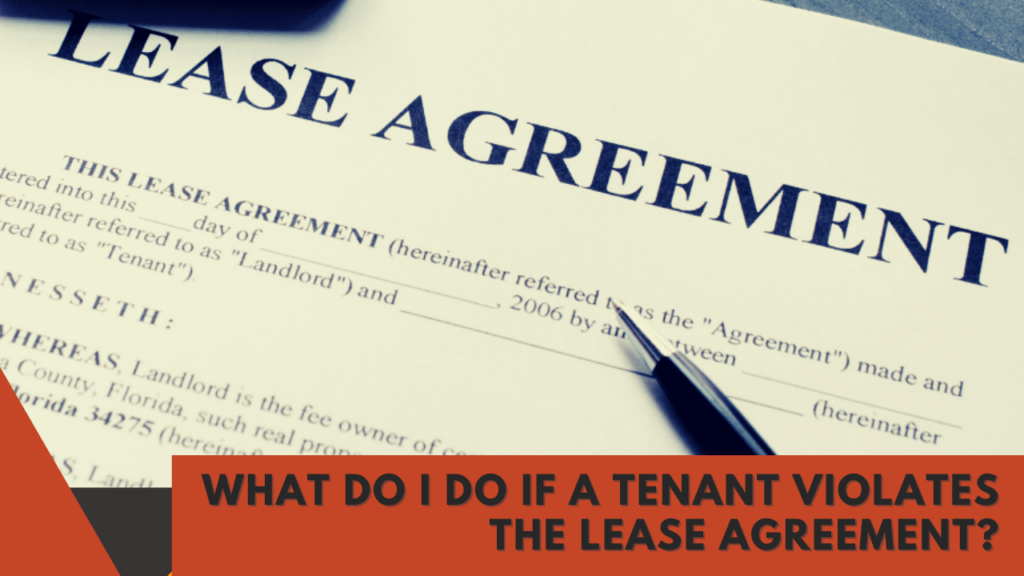What Do I Do If a Tenant Violates the Lease Agreement? | Cause for Eviction

Vancouver rental property owners are permitted to evict tenants for lease violations that remain uncured, but that shouldn’t be your first step when you realize your tenants are violating your lease agreement. The eviction process is arduous, especially since the pandemic arrived.
When you’re taking steps to remove a tenant from your property, remember that the law in Vancouver is often different than the law in Washington State. For example, the notice period for canceling a rental contract without cause will be 60 days instead of 20 days if you do decide to evict.
There are better ways to deal with lease violations. Eviction should be a last resort. Here are some of the things you can do to keep your Vancouver tenants in compliance.
Enforce Your Lease Agreement
Avoiding lease violations begins with the lease itself. Make sure it’s clear and specific. Consequences should be included for things like late rent, violation of the rules, and things like allowing unauthorized pets. You want to lease to specifically state that when tenants violate the terms of that agreement, they can be evicted under certain circumstances.
Types of Lease Violations and Appropriate Actions
The law is likely to consider some types of lease violations more severe than others, so it’s hard to have one blanket policy for responding to any bad behavior by your tenants. For example, if a tenant intentionally damages or vandalizes your property, that’s a pretty major infraction and could reasonably result in an eviction. You would likely have the legal standing to evict your tenant in as little as three days.
Less serious violations might require a 10-day notice for an eviction. This gives the tenant time to correct the violation and come into compliance before the eviction proceedings begin.
Some of those more minor violations of the lease agreement might include:
- Unauthorized pets
- Unapproved residents living in the property who are not on the lease
- Ongoing noise or nuisance complaints
- Minor property damage or unauthorized changes to the property
- Failure to pay rent on time in accordance with the rent collection policy
Requiring Compliance from Vancouver Tenants
When you notice a lease violation, you first step should be to communicate and document. You want to document the lease violation, with photos if possible. If you’re inside the home supervising a repair or conducting an inspection, for example, and you notice a couple of cats living in the home that were not screened or approved, you’ll want to take some pictures and document the violation. Then, put the discovery in writing. Send the tenant a notice about the lease violation along with a copy of the lease agreement where the language is highlighted that applies to the particular violation.
Give the tenant a specific amount of time to fix the violation. You can schedule another inspection to ensure the tenant has come into compliance, or you can provide additional options. Maybe they want to keep the cats and will agree to pay the pet fees and go through the screening process, for example.
If a tenant receives notice of the violation and does not fix the issue, eviction proceedings can continue against them.

Lease enforcement can be tricky, and eviction becomes even more complicated. If you’d like some help from a professional Vancouver property management company, please contact us at Utmost Property Management.
